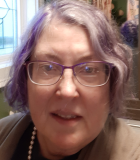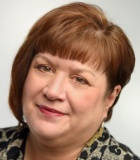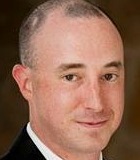TANYS TOUGH: THE POWER OF THEATRE
2020 Virtual Festival
WORKSHOPS
Presenters listed in alphabetical order by last name
VIRGINIA FENNESSY has been involved in the Auburn Players Community Theatre for more than 30 years, which has allowed her to dabble in a bit of everything. She holds a BA in acting and directing from the University of Buffalo, but found that experimenting in all areas of theater is what keeps life interesting. Recently retired from teaching English and directing high school plays, she is now working on filling her time with theater and substitute teaching, with a brief foray into wardrobe for film, in The Shed. Over the years she has worked for Merry-Go-Round Playhouse as a set designer, recently for Harlequin Productions at Cayuga Community College as a costume designer, and for the Auburn Players as Lady Montague in Romeo and Juliet. See? A little bit of everything.
COSTUMING ON A SHOESTRING
Fabric has become really expensive, so start looking for an alternative to the local JoAnn Fabrics. Salvation Army and Project Runway have transformed the way we should look at gently used clothing, and its potential. Sheets can become suits. Two prom dresses can become a Renaissance gown. A normal men’s suit coat becomes a cutaway morning coat. Poster board and foam core become a hat. Come bring your ideas, and take away a few!
Virginia Fennessy
BOB FRAME has managed to “enlighten” many stages in the Auburn area, including Cayuga Community College, Merry-Go-Round Playhouse, Auburn Public Theatre, Syracuse Shakespeare Society and Skaneateles Summer Theatre. Shows he has lit run the gamut from 42nd Street and Cabaret to Neil Simon and Shakespeare to ice shows. Bob is also an accomplished director and actor who is recently retired from full-time work as Director of Theatre Operations at CCC. He serves on the board of TANYS and is a Board Member of the American Association of Community Theatre. Bob will again serve as Technical Liaison for the 2021 AACT National Theatre Festival in Louisville, Kentucky. When he’s not in a theatre somewhere, he lives in Skaneateles with his wife, a stage manager and educator. Their three daughters, all of whom work in theatre, have all fled the nest as has his son, but he is smart enough to be content in the audience.
WITHOUT LIGHT, IT IS DARK
“Without light, it is dark.” An earth-shattering statement, no? But this is the basis for all lighting design: the application of darkness, vs. “Light defines what you see.” Whether you have four instruments in a library or 400 in an opera house, light sets the mood and directs the audience’s focus. This workshop for all theatre practitioners addresses the importance of light. How can a director help “set the mood?” Why does a Lighting Designer need to know more than on/off? Why should an actor “find the hotspot?”
Bob Frame
KRISTIE FARR is an award-winning theatre teacher from Indian River High School. Several of her productions have received Excellence in Directing awards from TANYS. For over 25 years, Kristie has been the New York State Theatre Education Association (NYSTEA) Curriculum Chair working with Theatre standards revision, curriculum development, assessment and certification. She is currently the Chair of the Arts Content Advisory Panel and the Theatre Chair for the IAAP Committee at the NYS Education Department. She has been part of EdTA’s Model Curriculum Project and Theatre Teacher Evaluation Workbook committee. Kristie’s Theatre program was recognized as the Educational Theatre Association’s Outstanding School in 2007. She won the national Reba R. Robertson Award for Outstanding Theatre Teacher in 2012, and the NYSTEA Rod Marriott Lifetime Achievement Award in 2017. She was thrilled to have been a part of the American High School Theatre Festival in Edinburgh, Scotland in 2013 and looks forward to returning again in 2021.
TEACHING THEATRE 2020: FACING THE GIANTS
There are many challenges facing theater teachers in the wake of the pandemic. This workshop will cover strategies to meet challenges like hybrid teaching and virtual productions. Participants will explore the NYS Theater standards and how to choose them for engaging classroom instruction as well as a variety of NYS and National resources available to teachers to help them successfully face the giants we may encounter in our classrooms and performance spaces this school year.
Kristie Farr
CRAIG HUTCHISON is an Adjunct Professor in the Speech, Communication, and Theatre Arts Department at the Borough of Manhattan Community College (part of the City University of New York system.) He is also head of the Black Orchid Theatre Group at the Episcopal Church of the Resurrection in New York City. He has directed, stage managed, designed, or lit more than 100 shows. He has been the General Manager of the Landers Theatre in Springfield, Missouri, and General Manager of Memorial Hall, the 3,000-seat civic facility in Joplin, Missouri. He has taught in Oklahoma, Kentucky, New Mexico, Missouri, and New York. He is a member of the Board of Directors of TANYS.
TO CUT, OR NOT TO CUT: THAT IS THE QUESTION
Once you have your script and realize it means a four-hour show, what do you do? What CAN you do? Sometimes, nothing. In most instances, you can take a "red pen" to the script. But be careful: if the work is still under copyright, you may face restrictions. If you are able to cut, you need to keep the audience in mind, as well as the intent of the playwright as expressed in the text. Are you cutting excess verbiage, or are you cutting plot elements that the audience may need to know?
Craig Hutchison
GARY DEWITT MARSHALL has enjoyed a fruitful career in film, television, and theatre. He originated the roles of freedom fighter Michael Dube in the Tony-nominated drama The Song of Jacob Zulu, and of Soldier Telfair in The Stone Mason with Viola Davis. Other critically acclaimed theatre credits include Four Men on a Couch (2016 ROC Award Best Stage Play, 2019 TANYS Outstanding Performance Merit Award), Smudge Stick Experience: The Pungent Aroma of Truth (2019 TANYS Outstanding Direction Festival Award), and Twelve Dollars (2017 TANYS Outstanding Direction Merit Award). On TV, Gary played detective John Smollers in Life on Mars. He also appeared in The Guardian, Southland (Regina King), Without a Trace (Enrique Murciano), New York Undercover (Malik Yoba), 24 (Kiefer Sutherland), ER (John Leguizamo), Matt Waters (Montel Williams), Angel Street (Robin Givens), Gemini Man, and Unsolved Mysteries. Gary’s feature film credits include The Hurricane (Denzel Washington), Renaissance Man (Danny DeVito), In & Out (Kevin Kline), New Jersey Drive (Heavy D), Love Walked In (Dennis Leary), Still Water, and Game Day (Sticky Fingaz).
A PATH FORWARD: BIPOC DIVERSITY & INCLUSION IN THE PERFORMING ARTS
This workshop will explore how performing arts organizations and practitioners can address the lack of diversity in community theatre and other performing arts – with a focus on increasing representation of Black, Indigenous, and people of color (BIPOC) at every level, and elevating BIPOC voices through programming, awareness and engagement.
Gary DeWitt Marshall
MICHAEL MCDERMOTT is a successful actor, designer, producer and director in the thriving theater community based around Albany, NY. He has used his experience in these multiple roles to help guide him as a producer in over 2 dozen productions, and has won several TANYS awards in the past few years. A former President at Albany Civic Theater and Treasurer at SpotLight Players, and the current Finance Director for Will Kempe’s Players, Michael brings the knowledge of organizational finance as it relates to each individual production's budget.
SO YOU WANT TO BE A PRODUCER?
Producing a community theater production can be a rewarding – or overwhelming – experience. We’ll focus on tips and tricks to make helming the business aspects of the production rewarding for you, and successful for the organization. We will discuss: • Defining the roles and responsibilities for a production • Planning tools and timeline • When to Beg, Borrow and Build • When do you need to be the Legal Eagle • Juggling the QSB (Quality/Schedule/Budget) for a successful mix. This will be a highly interactive workshop with tools provided in a handbook.
Michael McDermott
ANNETTE PROCUNIER has worked in community, educational and professional theatre for 50 years as a director, designer, stage manager, play polisher, adjudicator and workshop leader. As a director, she has worked for 16 different theatre companies in Canada and the U.S., and her productions have won awards and critical acclaim. Annette was a founder of two professional theatre companies in Canada, and she has represented Canada internationally and on the board of Theatre Canada. As an adjudicator, she has participated in festivals in Europe, Canada, Japan, and the U.S., judging more than 150 festivals in 35 years. Annette is the author of the only book on adjudication, Do You See What I See? and is a fellow of AACT. She has worked extensively with playwrights on script development, has been a judge in several play writing competitions, has adjudicated several new play festivals, and worked with new playwrights for the Inspirato Festival in Toronto.
ADJUDICATION FOR EVERYONE
We will examine what adjudication has to offer festival participants, not just those who are associated with the performance, as well as how to ensure the comments provided are suitable to everyone. We will look at how to make positive comments in difficult situations where the play or its performance are lacking, and how to work to raise the level of future production for the company.
Annette Procunier
CURTIS PHILLIPS received an MFA in Scenic Design from the University of Wisconsin Madison, where he studied under Joe Varga. Professional theatre credits include produced designs for Off-Off Broadway for the Mint Theatre Co. and the American Globe Theatre, as well as Off-Broadway for the Signature Theatre, Musical Theatre Works and Manhattan Class Company. Curtis has also acted as the resident and guest designer for regional theatre across the country including The Duluth Playhouse, University of MN Opera, Theatre Cedar Rapids, Bristol Valley Theatre, Chautauqua Theatre Company and Cumberland County Playhouse, where he designed the first licensed production of Disney’s Beauty and the Beast. Curtis has also taught scenic design and painting at UW Madison, SUNY Fredonia and Edgewood College. He is currently an Associate Professor/Set Designer at the University of MN Duluth.
SCENIC DESIGN: NO BUDGET? SMALL BUDGET? THAT’S OK!
Yes, we can produce Broadway designs/productions on small or no budgets. How? This session will help reiterate keeping the text, theme, and metaphor in mind. Scenery, costumes, lighting, sound are secondary to the actors who tell the story. Let’s explore together how simply designers can help actors tell stories. We will focus on small budget sets that can enhance the overall production without breaking the bank.
Curtis Phillips
ED SAYLES After 40 years as a successful producer and director, where his accomplishments earned him places in Who’s Who in America and Who’s Who in the American Theatre, Ed began his own consulting business, Creative Communications & Development. CC&D offers a wide range of services to not-for-profit agencies, including Mozaic. Since Ed began consulting at Mozaic he has helped raise over $1.7 million for capital improvements and program expansion. He also enjoys working at Mozaic’s Spotlight Studio, a visual and performing arts facility where he works with a company of 40 performers with developmental disabilities and directs monthly performances. Ed has served two terms on the Theatre Panel of the New York State Council on the Arts. He has received resolutions of commendations from the U.S. House of Representatives, the NYS Senate and the NYS Assembly. Ed holds degrees in History, Speech Communication, Rhetoric and Directing.
THE MUSICAL THEATRE PROCESS: FROM AUDITIONS THROUGH PERFORMANCE
This workshop is designed to take participants through the entire musical process from a professional perspective which can be applied to a community theatre situation. It will begin with auditions, then move through preparations for rehearsals, including creating rehearsal schedules that maximize time by explaining how to run multiple rehearsals. We’ll also discuss the organization of staff and developing the design in the most efficient and simplest manner possible.
Ed Sayles
JUMBO SCHIMPF has worked professionally on scores of productions with dozens of companies since 1998, and has held nearly every position in theatre from actor, to carpenter, to director, to producer, to stage manager. He has lectured on various theatre arts for a variety of schools and during his tenure as Education Director at Greenlight Theatrical. He’s most recently taught as adjunct faculty at Rowan University. Jumbo served as a Trustee at South Camden Theatre Company for 5 years until 2015, and was named one of their Charter Company Members. He has adjudicated and judged a variety of festivals for local theaters, the English Speaking Union, Delaware Theatre Association, and the Eastern States Theatre Association.
AUDITIONS!
With actors and directors in mind, this interactive workshop addresses the most important rules of any audition – and when to break them. We’ll cover how to write an audition notice (and read between the lines), how to prep for whichever side of the table you’re on, and how to get and give the best of yourself to the process. Whether you want to hone your monologue, or are tired of listening to so many actors say the same thing, we’ll explore performance, psychology, and preparation.
Jumbo Schimpf
BARRY STREIFERT has worked on a few hundred productions in almost 15 years with over a dozen local companies in the Albany, NY area – occasionally as an actor, and in almost every backstage and tech position there is. But mostly he keeps coming back to sound design and sound op. He holds a few TANYS awards for sound and directing. One of his long-standing favorites is doing sound for Spring Awakening with Our Own Productions at The Egg in Albany. He also especially enjoys working with Home Made Theater, at The Spa Little Theater in Saratoga. Barry has worked with sound and video since middle school. Recently, he has also discovered the fun of lighting design and has been experimenting in that area.
SOUND DESIGN AND OPERATION FOR THEATRE
This workshop will provide beginner to intermediate information on how to work in sound in theatres. We’ll cover how to find a show, setting up equipment, finding out what the director wants, sourcing music, how to build a rep to get future shows, and more. Bring your questions and share your experiences in the Q&A at the end!
Barry Streifert
STEVE WILLIS received his M.F.A. in Acting/Directing from UNC-Greensboro and his B.A. in English/Drama from Averett University. An actor, director, and playwright, he has taught theatre classes at several colleges and universities. His plays have won numerous awards and have been performed in New York City and various cities throughout the U.S., as well as internationally. Steve has adjudicated numerous theatre festivals, and he is delighted to be part of TANYS Festival again. Currently, he serves as Special Assistant to the President at Randolph College in central Virginia.
DIRECTING NEW PLAYS: THE CHALLENGES AND THE REWARDS
The collaborative process of directing a new play can be exciting, but also challenging. Everyone involved – actors, designers, and often the playwright – is part of the creation of something new and as the director, you are guiding the process. In this workshop, Steve will help directors journey through bringing a new play to life. He will also share some of the pitfalls that can happen – and have happened to him – and offer insight as someone who has directed new plays and been on the other side of the process as a playwright.
Steve Willis
DIRECTION AND DETAIL
This session will examine the importance of detail both in dramaturgy and theatrical execution and how to make choices that will enhance the production and deal with the limitations of the company in resources, skill and talent.
ACTING TECHNIQUE
What’s the best one for you? Stanislavski? Meisner? Strasberg? Or maybe Graham – did you know Martha developed her own acting technique? What about Adler, Spolin or Grotowski? Or Stanislavski after he changed his method? Turns out, no teacher can give you all the tools to be the best you. That’s where this workshop will help. We’ll take a tour of a few different techniques, illustrate how each has its place, and figure out which have the most to offer you (until you need another one).
ADAPTING SHORT STORIES AND NOVELS FOR THE STAGE: A STEP BY STEP PROCESS
Playwrights have been adapting short stories and novels for the stage for many, many years. Sometimes this results in great success, but other times, the process fails miserably. What are specific things that can help you make your adaptation successful? What are the things you should absolutely avoid? Steve will answer these questions as well as discuss specific kinds of stories that often translate well from page to stage. If you have a work in mind that you’d like to adapt, please feel free to bring questions about it to the workshop.
Sorry, we're unable to offer the SOUND DESIGN AND OPERATION FOR THEATRE workshop. Get well soon, Barry!








